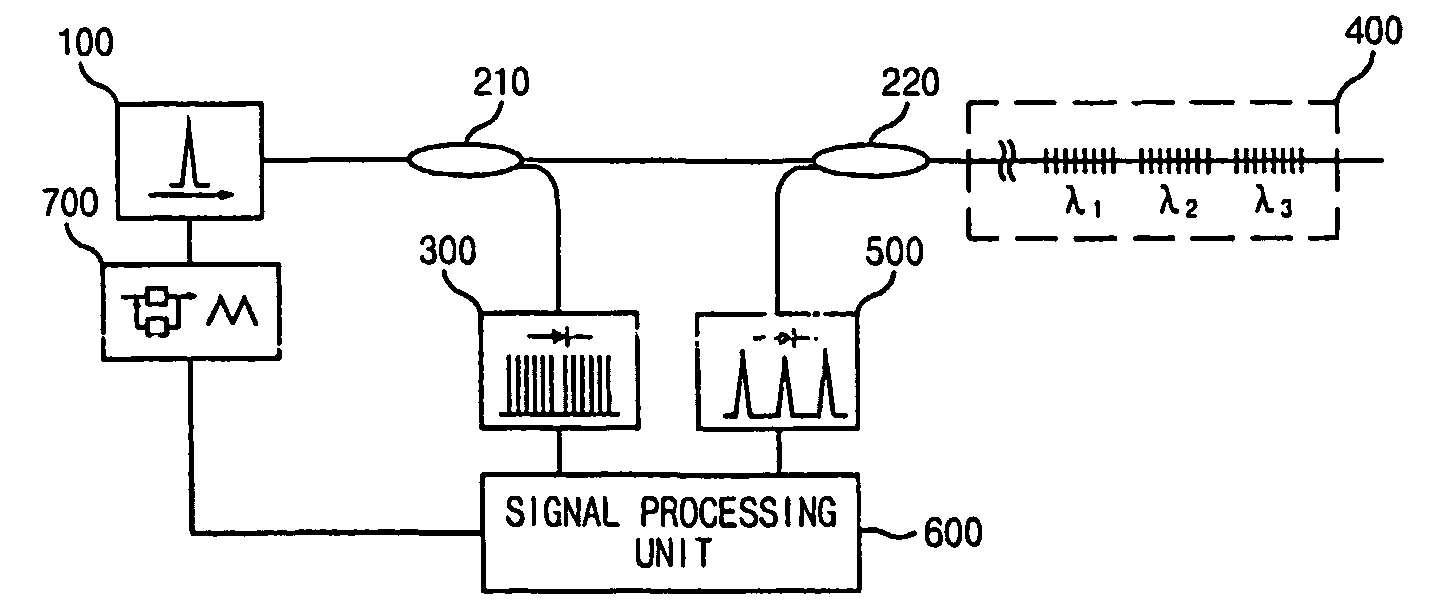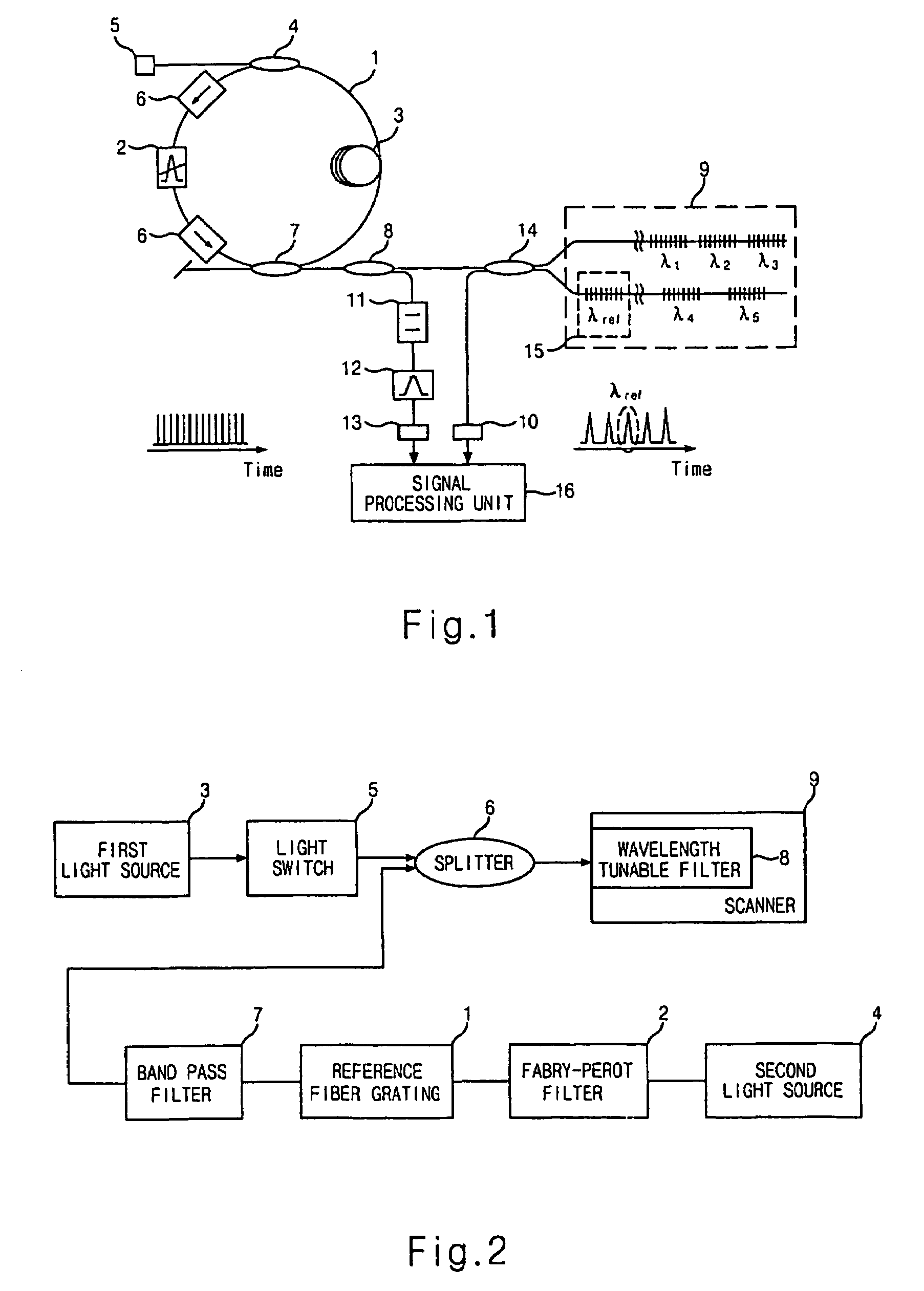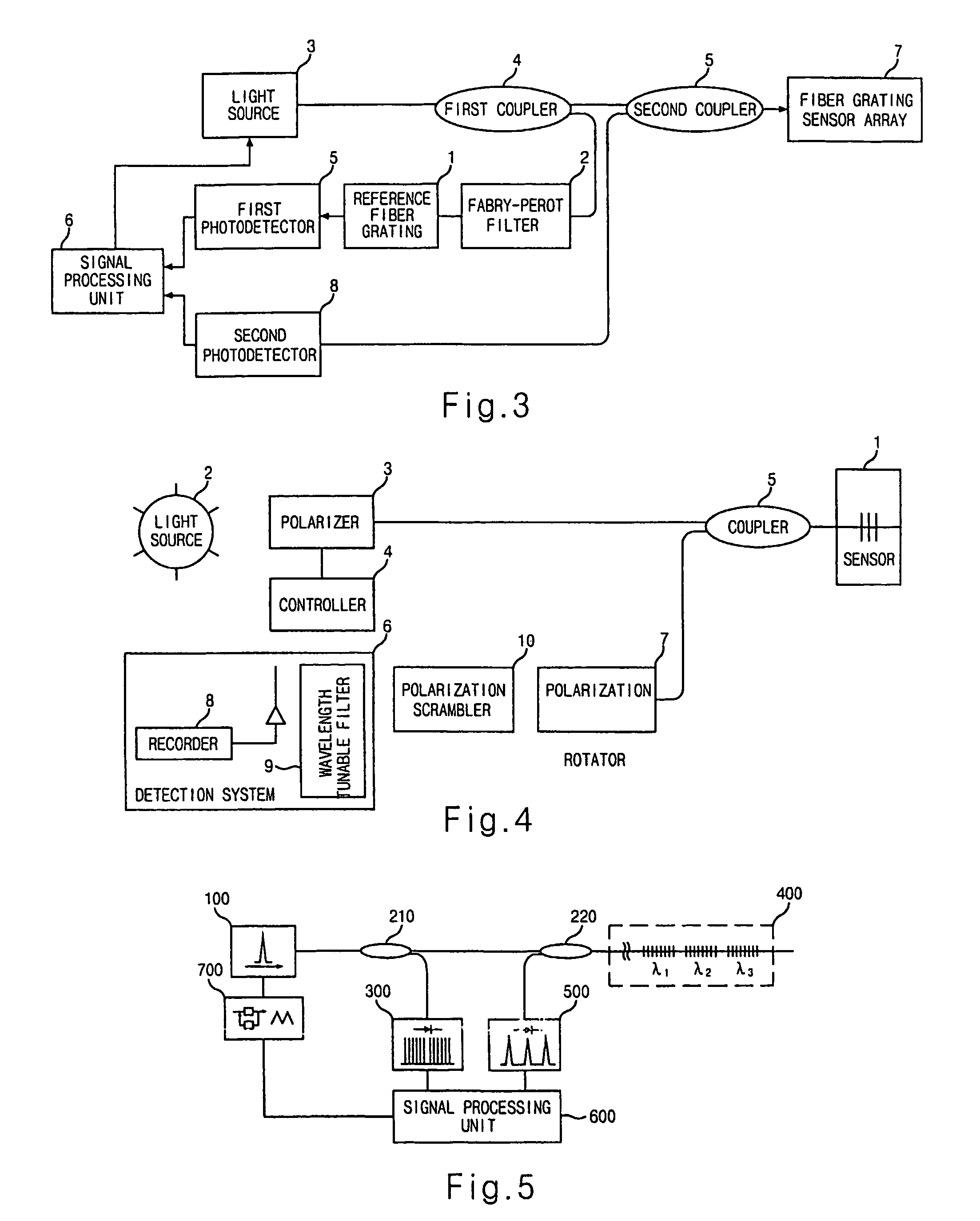Fiber Bragg grating sensor system
a sensor system and fiber bragg technology, applied in the field of fiber bragg grating sensor system, can solve the problems of deteriorating accuracy and repeatability in long-term measurement, measurement error, and inability to linearly vary the wavelength of the practically used tunable filter according to the applied
- Summary
- Abstract
- Description
- Claims
- Application Information
AI Technical Summary
Benefits of technology
Problems solved by technology
Method used
Image
Examples
Embodiment Construction
[0035]In the following, preferred embodiments of the present invention will now be described in detail with reference to the accompanying drawings.
[0036]FIG. 5 schematically illustrates the fiber Bragg grating sensor system according to an embodiment of the present invention; FIG. 6 schematically illustrates a wavelength tunable laser in the fiber Bragg grating sensor system according to FIG. 5; FIG. 7 schematically illustrates a reference wavelength generating unit in the fiber Bragg grating sensor system according to FIG. 5; and FIG. 8 schematically illustrates a laser wavelength control feedback unit in the fiber Bragg grating sensor system according to FIG. 5.
[0037]Referring to FIG. 5, the fiber Bragg grating sensor system according to an embodiment of the present invention comprises a wavelength tunable laser 100, a reference wavelength generating unit 300, a fiber Bragg grating array 400, a fiber grating wavelength sensing unit 500, a signal processing unit 600, a laser wavele...
PUM
| Property | Measurement | Unit |
|---|---|---|
| Bragg wavelength | aaaaa | aaaaa |
| wavelength tuning range | aaaaa | aaaaa |
| wavelengths | aaaaa | aaaaa |
Abstract
Description
Claims
Application Information
 Login to View More
Login to View More - R&D
- Intellectual Property
- Life Sciences
- Materials
- Tech Scout
- Unparalleled Data Quality
- Higher Quality Content
- 60% Fewer Hallucinations
Browse by: Latest US Patents, China's latest patents, Technical Efficacy Thesaurus, Application Domain, Technology Topic, Popular Technical Reports.
© 2025 PatSnap. All rights reserved.Legal|Privacy policy|Modern Slavery Act Transparency Statement|Sitemap|About US| Contact US: help@patsnap.com



